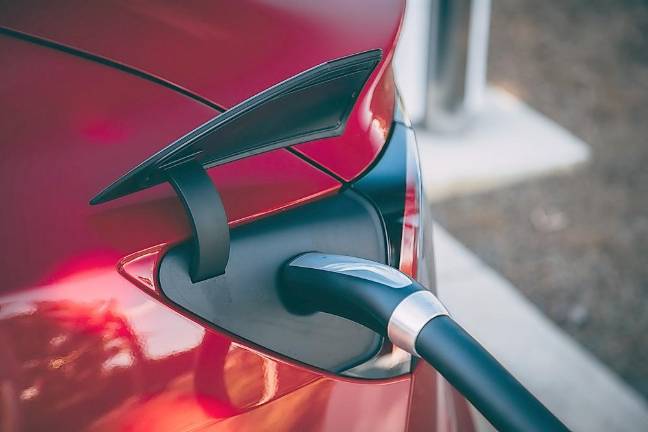A NYS law requiring that all new vehicles sold by 2035 to be electric awaits governor’s signature

Legislation sponsored by Assembly Environmental Conservation Committee Chair Steve Englebright and Senator Pete Harckham has been approved in both chambers. The legislation directs the Commissioner of the Department of Environmental Conservation to establish regulations to ensure that 100 percent of new passenger vehicles are electric by 2035 and that medium- and heavy-duty vehicles are electric by 2045.
With more than 11 million vehicles registered in the state, the transportation sector is the single largest contributor to greenhouse gas emissions in New York State, with much of that air pollution disproportionally affecting low-income communities and communities of color. As air pollution leads to higher cases of lung and cardiovascular disease, Black and brown communities have been hit hard by COVID-19, which is exacerbated by pre-existing conditions. This legislation will help New York achieve its climate goals that were adopted into law in 2019.
Here’s what environmental groups are saying:
Rachel Patterson, legislative and climate associate for Environmental Advocates NY:
“Electrification is the future. We have a real opportunity to reverse course and electrify the transportation sector, which opens the door to removing dirty tailpipes from our roads. Changing how we think about traveling from point A to point B is a necessary step in combatting the current climate crisis, and a highly effective method of cleaning up the air we breathe and creating a green economy. We applaud sponsors Englebright and Harckham, as well as legislative leadership, and look now to Governor Cuomo to sign this bill into law.”
Eddie Bautista, executive director, New York City Environmental Justice Alliance:
“Electrifying our transportation system and reducing the sector’s impact on the climate and our communities is imperative. Low-income communities and communities of color have been overburdened by air pollution for much too long. The passage of this EV bill will contribute to our efforts to improve the public health outcomes in environmental justice communities and help us reach our most ambitious climate goals.”
Lauren Bailey, director of Climate Policy, Tri-State Transportation Campaign:
“The commitment to electric vehicle sales by 2035 operationalizes our climate goals in a meaningful way for New York. This forward-looking policy lets manufacturers, drivers and cities plan for an electric transportation system which will help New York stop contributing to climate change and, more urgently, lessen harm to communities currently breathing toxic emissions from cars and trucks.”
Jenny Veloz, community organizer for New York Lawyers for the Public Interest:
“This bill ensures New York State’s commitment to electrifying its transportation fleet which will especially ease the burdens of air pollution emissions in environmental justice communities.”
Liz Moran, Environmental Policy director for NYPIRG:
“This legislation sets New York up to move off antiquated fossil fuel-based transportation and to the way of the future: electric vehicles. For New York to meet its critical climate goals and reduce the air pollution causing asthma and other illnesses in so many communities, eliminating climate pollution from the transportation sector is essential. NYPIRG applauds Senator Harckham, Assemblymember Englebright, and legislative leadership for passing this legislation. Governor Cuomo should now sign this into law immediately.”
Rachel Spector, staff attorney at Earthjustice:
“Tackling the climate crisis and addressing public health issues go hand-in-hand. With passage of this bill, New York is actively moving towards a zero-emissions transportation sector that will improve our air quality and reduce health issues such as high asthma rates and cardiac issues from toxic air pollution We are encouraged that the Legislature is committing New York to electric vehicles and is working towards a clean air future for the state.”